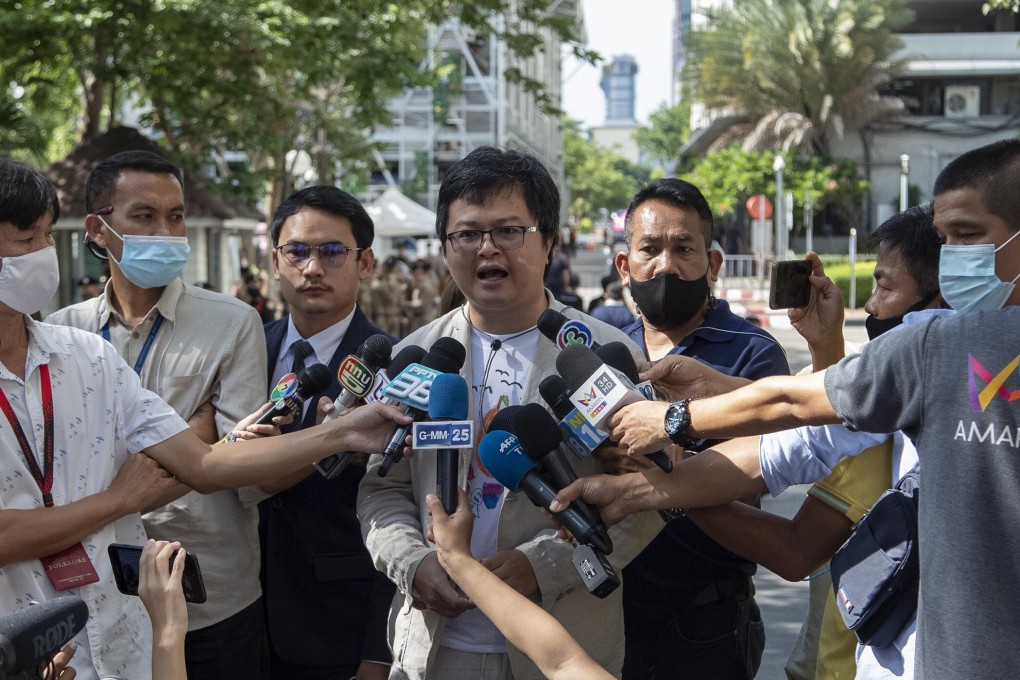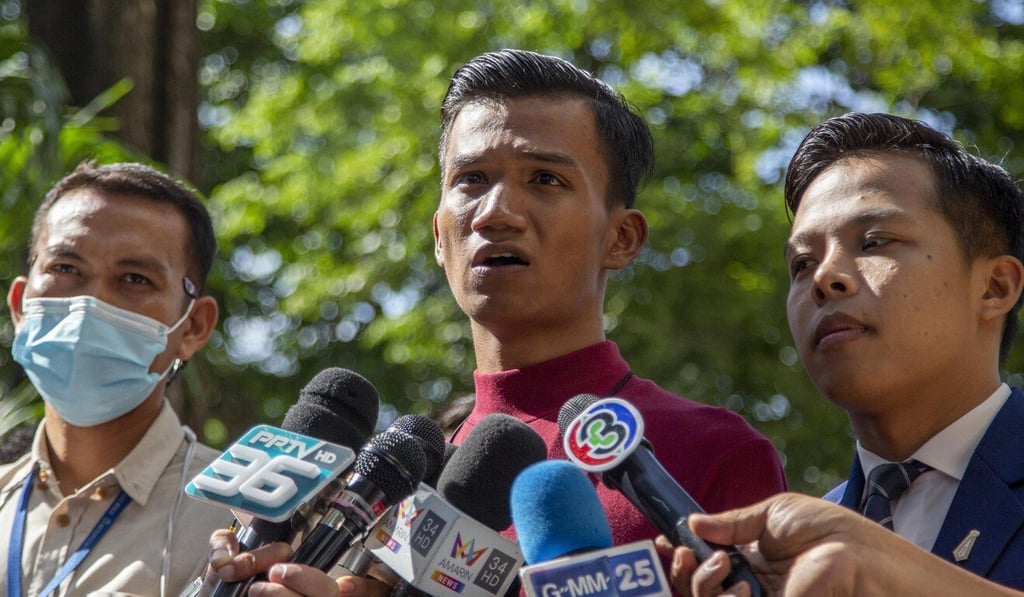Thailand jails persistent activists Arnon Nampa and Panupong Jadnok over bail terms breach
- Both men are key figures in Thailand’s growing protest movement and are among those calling for reform of the country’s revered, protected monarchy
- They were granted bail last month for charges including sedition arising from a July rally, but were found to have breached the conditions of their release

The move to put Arnon Nampa and Panupong Jadnok in custody while police proceed with the cases against them was the first time the activists have been denied release on bail. They can be held for up to 48 days for police investigation without formal charges, but can also apply again for bail during that time.
Their arrests were among more than a dozen in recent weeks for sedition and on charges related to demonstrations that police say were in breach of a ban on gatherings imposed to prevent coronavirus infections.
Thai activists plan a major protest on September 19.

Police had earlier requested the court revoke the bail of the two top leaders of the burgeoning anti-government protest movement for refusing to stop their public political activities.